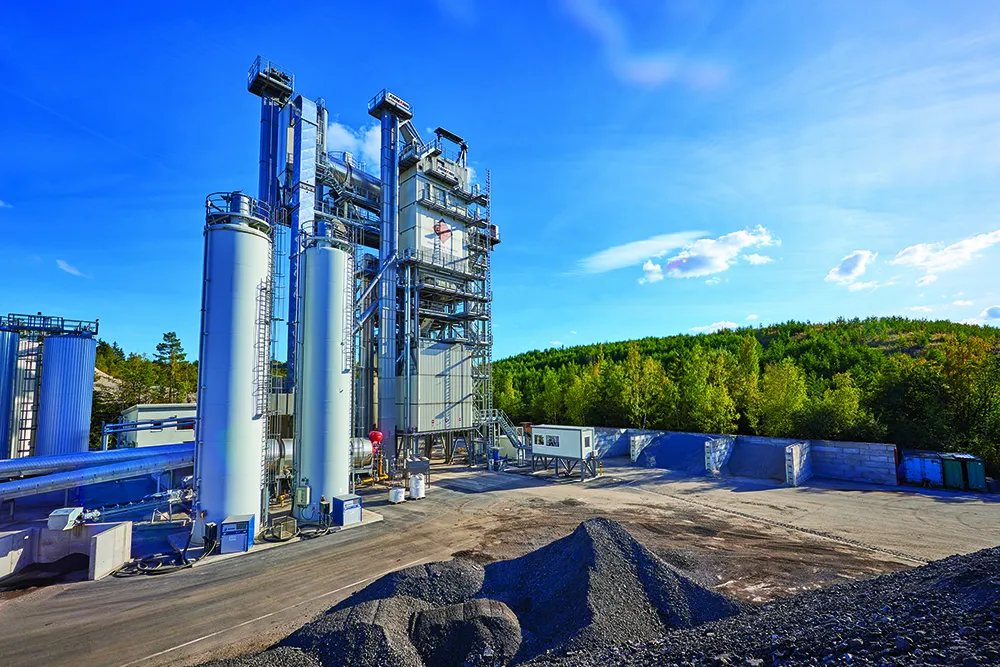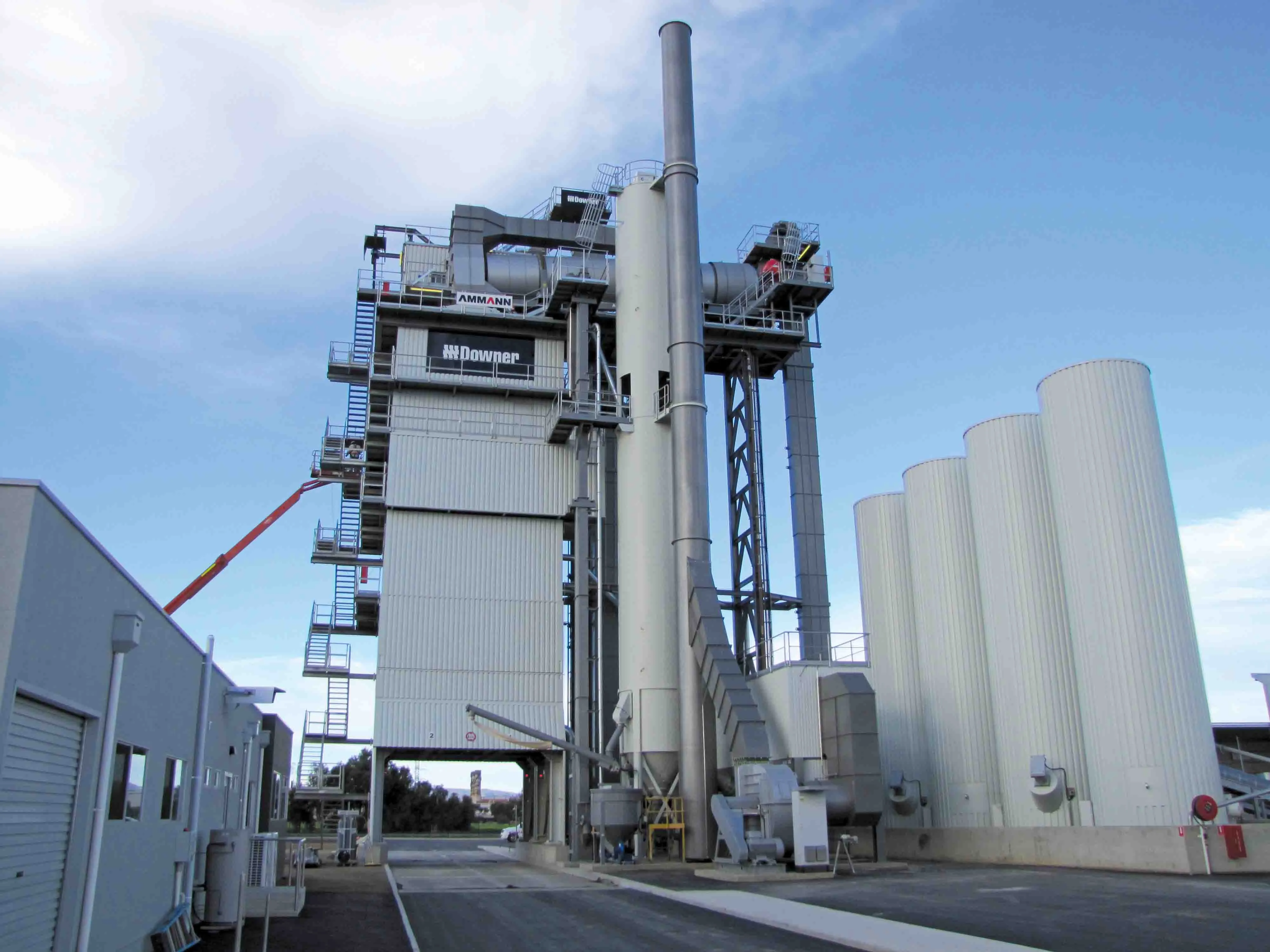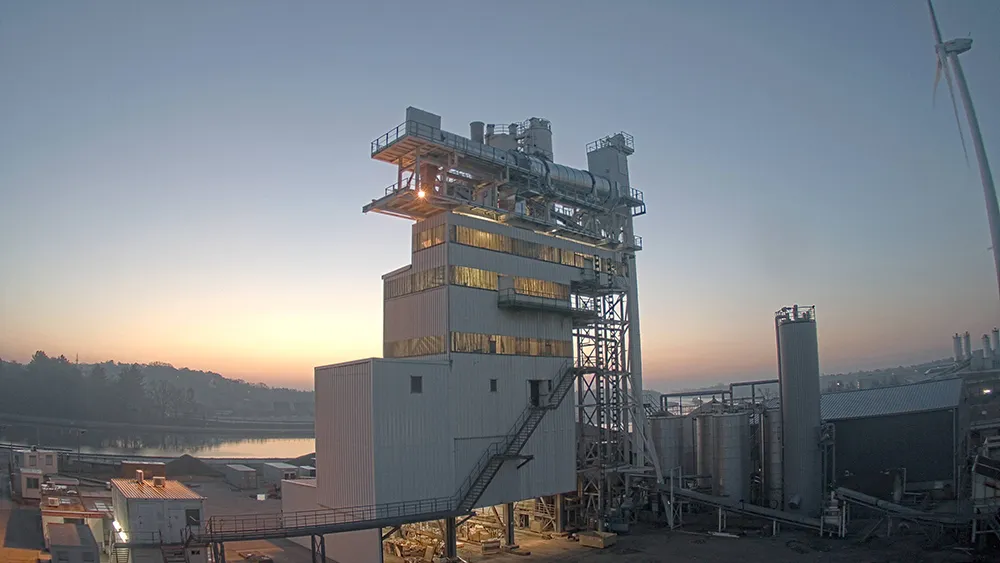
When the company began to look at options for upgrading its site in Sindelfingen, Germany, the firm opted to purchase equipment from a supplier it already had considerable experience with. The asphalt producer required a plant that would combine high performance and high quality with advanced environmental features.
Makadamwerk Schwaben has five asphalt plants spread across the greater Stuttgart area, the Hohenlohe district and Aalen, Germany. The firm is a supplier to major companies such as Eurovia and Wolff & Müller and knew it would require a sophisticated plant to meet the needs of its customers.
Makadamwerk Schwaben’s facilities are all equipped with Ammann's compact solutions, which include the delivery of high-quality asphalt to the region's many road construction projects.
With its positive experience of the Ammann range, Makadamwerk again opted for the same supplier. The Ammann ABP HRT asphalt mixing plant that the company opted for, one of the most modern facilities in Europe, has now gone into operation.
For Makadamwerk Schwaben, a major focus was on sustainability. Reduced emissions and increased use of recycled materials were at the top of the priority list for the new plant. The choice of an Ammann ABP HRT met these demands.
Plants of this type can process up to 100% recycled asphalt. Using a hot gas generator, the temperature of the recycled material is carefully raised inside the counterflow recycling dryer RAH100. A steam disposal system adds versatility as it allows the combination of hot and cold recycling.
By using the advanced Ammann HRT technology, Makadamwerk Schwaben assured it had access to sophisticated technology. A novel feature of the entire ABP HRT recycling system is its vertical design, with key components located directly above the mixer. Only gravity is used to move the material, removing the need for maintenance-intensive conveying technology and saving costs. Using gravity reduces the energy input, minimises wear and is said to optimise the transport of the hot recycling material. In addition, Ammann says that dust and noise emissions are reduced compared to conventional mixing plants. When producing low-temperature asphalt, the plant has been equipped with an innovative bitumen foam additive. Even special mixes, such as mastic asphalt, can be produced without the need for special requirements. The two-row mixing tower allows the highly versatile process of the mix by using different minerals and aggregates.
When carrying out the installation of the new equipment, Ammann was careful to link the entire plant periphery with the existing infrastructure. Carrying out this preparation in advance meant that the installation process went smoothly and without delay. Just seven months after the dismantling of the old plant began, the new Ammann ABP HRT started production in the third quarter of 2021. Since then, the company’s production capacity has reached 320tonnes/hour and has proven its ability to produce high-quality mixes to tight specifications.
At the same time, it is also a state-of-the-art plant in terms of minimising exhaust gas, dust and noise levels.









